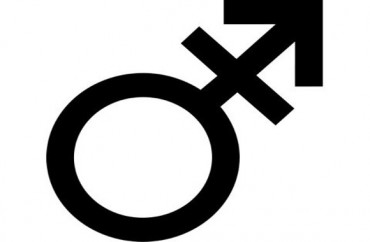
We are discarding order and rationality in favor of genuine fantasy
Over the past few years the ideology of transgenderism has taken over most of the liberal wing of American politics, with the bizarre and inexplicable result that many highly educated and intelligent individuals are proclaiming, with evident seriousness and sincerity, that men can become women and women can become men. In all likelihood very few people actually believe this—you would probably have to go a fair country mile to find someone who is genuinely convinced that a man’s mutilating his genitals and “identifying” as a woman somehow, you know, makes him a woman—but nonetheless very many people feel compelled to genuflect to this strange and indefensible doctrine. It is a palpably weird moment in American cultural history.
The wholesale abandonment of the objective fact of the male-female binary has led to some curious demands on the part of transgender activists. Recently, for instance, a professor at Philadelphia’s Temple University, Heath Fogg Davis, called for the abolishment of male-female restrooms. In their place, he argues, we should install “all-gender single-user stalls that are enclosed by floor-to-ceiling partitions.” Whatever for? Well, apparently single-sex restrooms perpetuate “sex-identity discrimination.” It’s not at all clear what “sex-identity” means—sex is an objective fact, not a subjective identity. But “identity” is the word of the moment: rather than deal in concrete and scientific things like biology, we are instead asked to accept that however people “identify” is how they are—man, woman, two-spirit, what have you.
This is a destructive ideology—quite literally destructive, in that it destroys an orderly and rational way of looking at the world and replaces it with something closer to genuine fantasy. The results, it’s worth pointing out, are as humorous as they are dismaying. Professor Davis, for instance—having already argued for the abolition of sex-segregated restrooms—is also on record calling for the abolition of sex as a category altogether: “Whether on birth certificates or college admissions applications or on bathroom doors,” his book argues, “why do we need to mark people and places with sex categories? Do they serve a real purpose or are these places and forms just mechanisms of exclusion?”
The answer is obvious: we “mark people and places with sex categories” because those categories exist and they mean something. Sex distinctions mean something from a scientific perspective: men and women are different, and no amount of hormones or surgery or linguistic jiggery-pokery can bridge that gap. Sex distinctions mean something within a cultural framework, as well: it is perfectly reasonable—preferable, even—that men and women might not want to use the bathroom around each other, dress and shower in front of each other, and otherwise expose themselves to each other in vulnerable situations. Virtually every culture in every country on every continent in every era of civilized human history has recognized that, when it comes to intimate and sensitive situations, unacquainted men and women should be—and overwhelmingly prefer to be—separated.
This has not been a controversial opinion for, oh, around eight thousand years or so. Only in this brave new era of transgender ideology do we have serious public intellectuals openly wondering if “sex categories…serve a real purpose.” They do. And, LGBT activists notwithstanding, most of us understand this, and will act accordingly.
MORE: Most children who identify as transgender are faking it, says ‘gender clinic’ psychiatrist
MORE: Sorority accepts men: ‘A transgender woman is just as much of a woman as I am’
Like The College Fix on Facebook / Follow us on Twitter





Please join the conversation about our stories on Facebook, Twitter, Instagram, Reddit, MeWe, Rumble, Gab, Minds and Gettr.